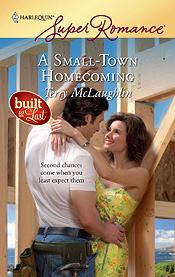Dialog. It's what I write first. I explained in a previous post how I organize to write a lot, quickly, with forward momentum. My system of writing dialog, a product of my trials and errors as well as classes with Elizabeth Hoyt and Terry McLaughlin, usually requires at least three visits to a scene. That breaks down nicely to a week of blogging, doesn't it?


First, I put down the words the characters say and nothing else. At the Emerald City Writer's Conference Terry McLaughlin said "get out of the way and let the characters talk." That's what I try to do. I don't bother with quotation marks because they interrupt and distract me by making me wonder about subsequent punctuation. I manage to capitalize where necessary because I'm a moderately fast touch typist, but if you're not, don't worry about caps either.
In this first hashing, I do NOT interrupt my writing with "he said" tags or action beats such as "the viscount shook his head." If I have more than two people, I might use the speaker's first initial here or there to keep things straight in my head, but nothing else. If I have a really important event that the characters must react to and I need a note to myself to recall how the scene blocks out, then I write [car rolls in ditch] and continue with the conversation. Here's a first draft of part of my last scene in Warrior's Hilt, the reunion that ends with happily ever after. Wulf and Theresa meet at the top of an escalator at Macy's in New York. She's been waiting at his brother's home for three days after they fled an explosion at an open-air historic village museum outside of Copenhagen:
Thank you.
For what?
For listening to me finally. For going with Ivar and staying safe so you would be here for me.
What took you so long?
His lips hovered over hers. I saw the rune in the snow and knew I could stop looking for you. He kissed her and didn't stop. [her feeling]. It was a day before I could make it to Copenhagen and another before Mulla had me fit for public.
And you didn't think to call?
I have this problem with telephones.
Many men do. They still call.
Lately they seem to be bugged.
Handy excuse.
I figured I might as well come home.
No repeats of our other flight?
Mulla checked me as air cargo. Seemed like the easiest way to avoid chatty seatmates.
Me again: So I have some problems making indent work in a blogger block quote. If you know how, please tell! How hard was it to follow which character, Wulf or Theresa, is speaking? If I did a bang-up job, each character's voice would come through in word choice and structure. The reader would know immediately what a man had said and what a woman had said without tags. I'm not that good on the first pass.
My thoughts: The first couple lines were unclear and need tags or action/movement beats to clarify speaker and add interest, but I hope readers feel that "you didn't think to call" and "many men do" were said by the heroine. This raw dialog could play various ways. Is Wulf penitent or unrepentant? Sorry or cocky? He's a bit wordy for an immortal Viking warrior turned Special Forces soldier, unless he's nervous (he is; he's about to propose). The heroine's terseness could indicate anger, frustration, sarcasm or maybe teasing, confidence or flirting, depending on her body language and emotions. I can see her face in my imagination but I need to translate that to paper.
Your Assignment, Should You Choose to Accept It: Write the dialog only leading to a marriage proposal and post it in the comments. As in my example, you can use two sentences for set-up. Wednesday we'll tackle the next phase - editing - and we can all work on any posted samples. Or you can comment on mine!





3 comments:
Wow, Anna, your dialogue draft certainly looks familiar. I begin so many of my scenes in exactly this way :-).
With apologies to Dragnet's Joe Friday, "Just the words, ma'am," sure works for me.
I'm looking forward to reading more of your thoughts about dialogue :-)!
Thanks Terry. I'm already drafting Wednesday's post which of course requires me to edit my own dialogue as well. I'm new at this and finding it hard to shift gears.
I really like the tool belt on the cover of A Small Town Homecoming, by the way. That's why I picked it out of all your books even though I'm a city chick.
My word verification is adism, which almost seems like it should be a word. Love of commercials?
Anna, you inspire me with your posts about craft! Perhaps I'll unearth my manuscript tonight...
Post a Comment